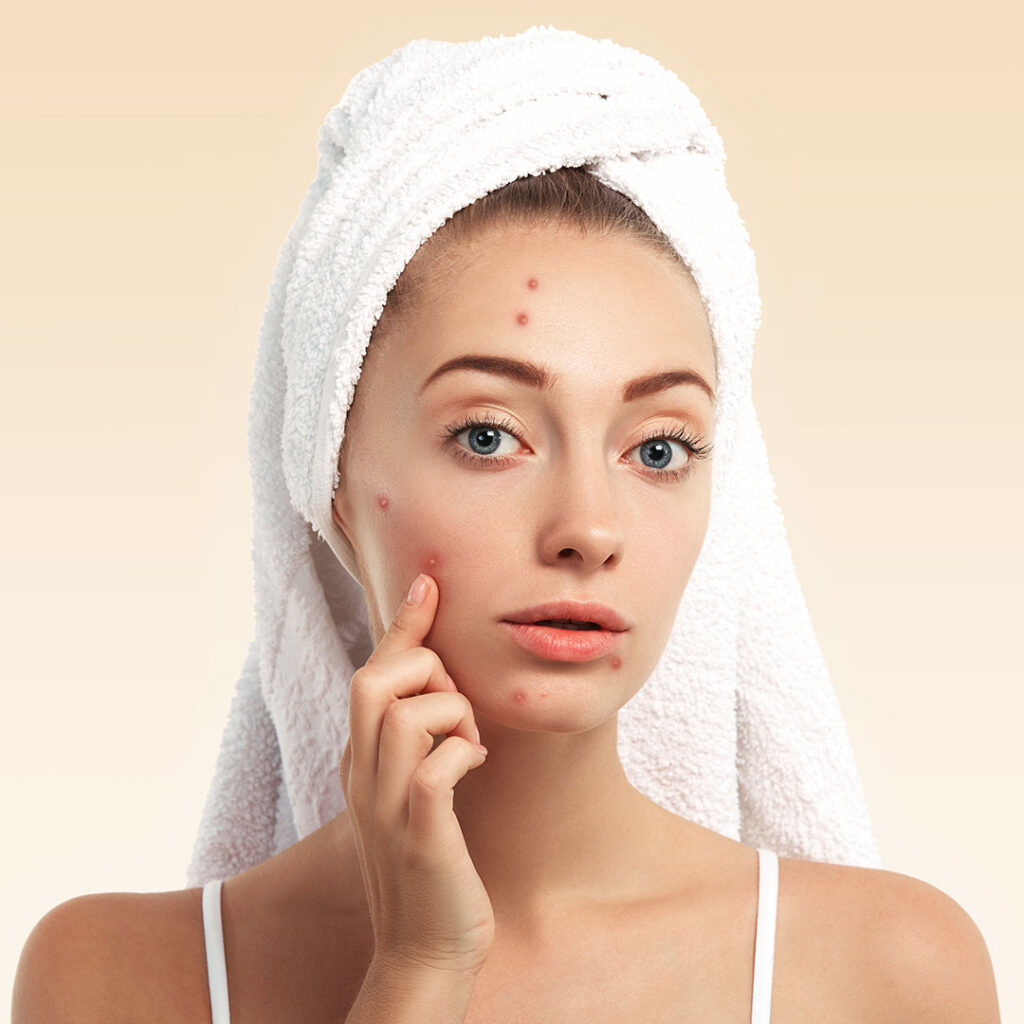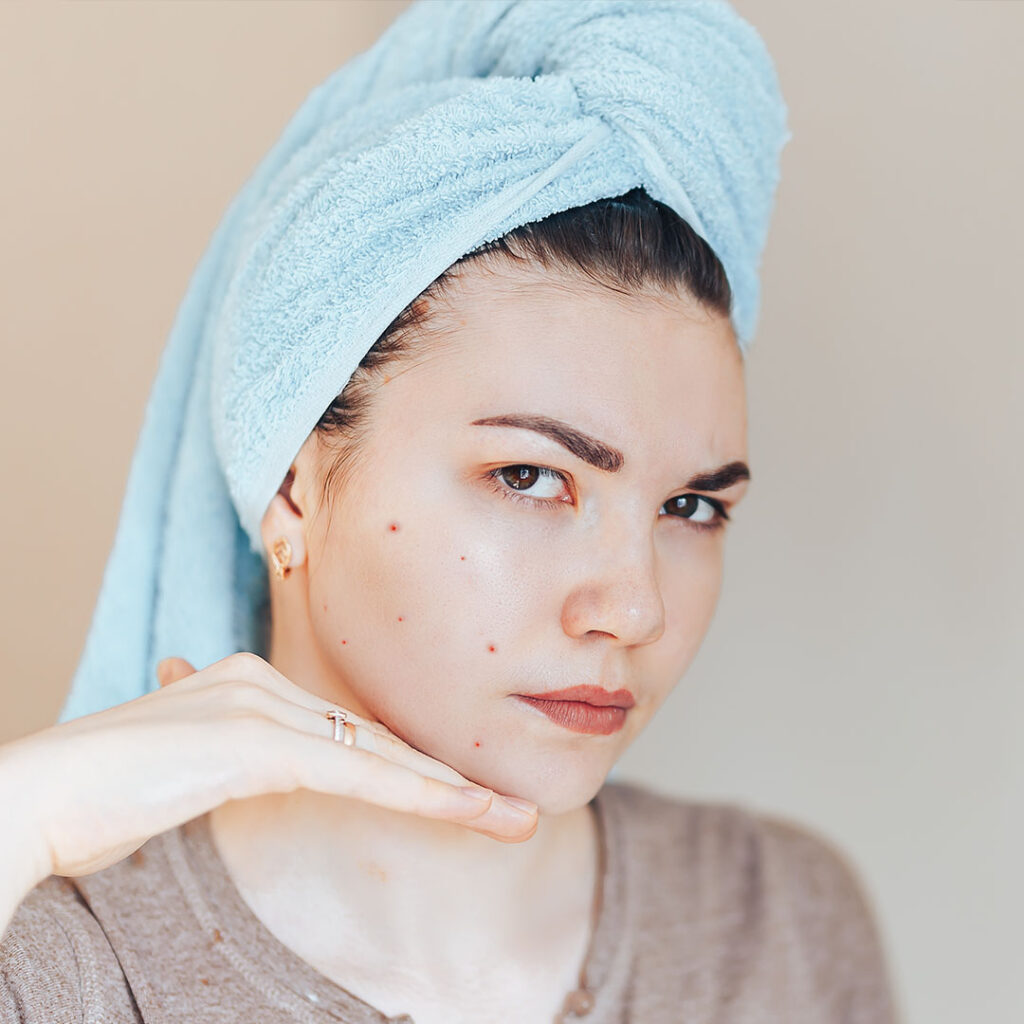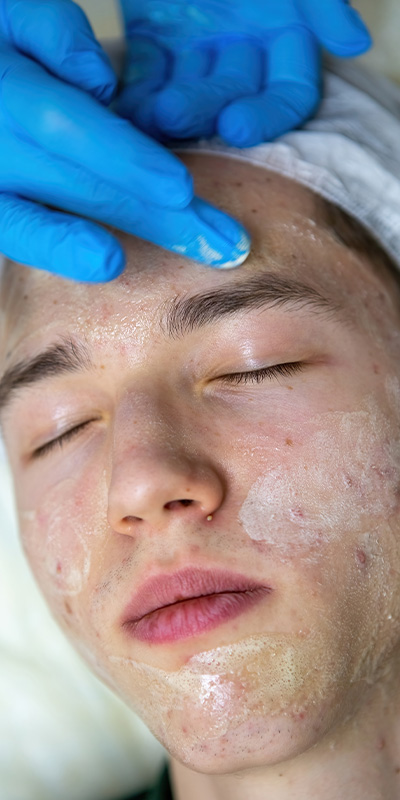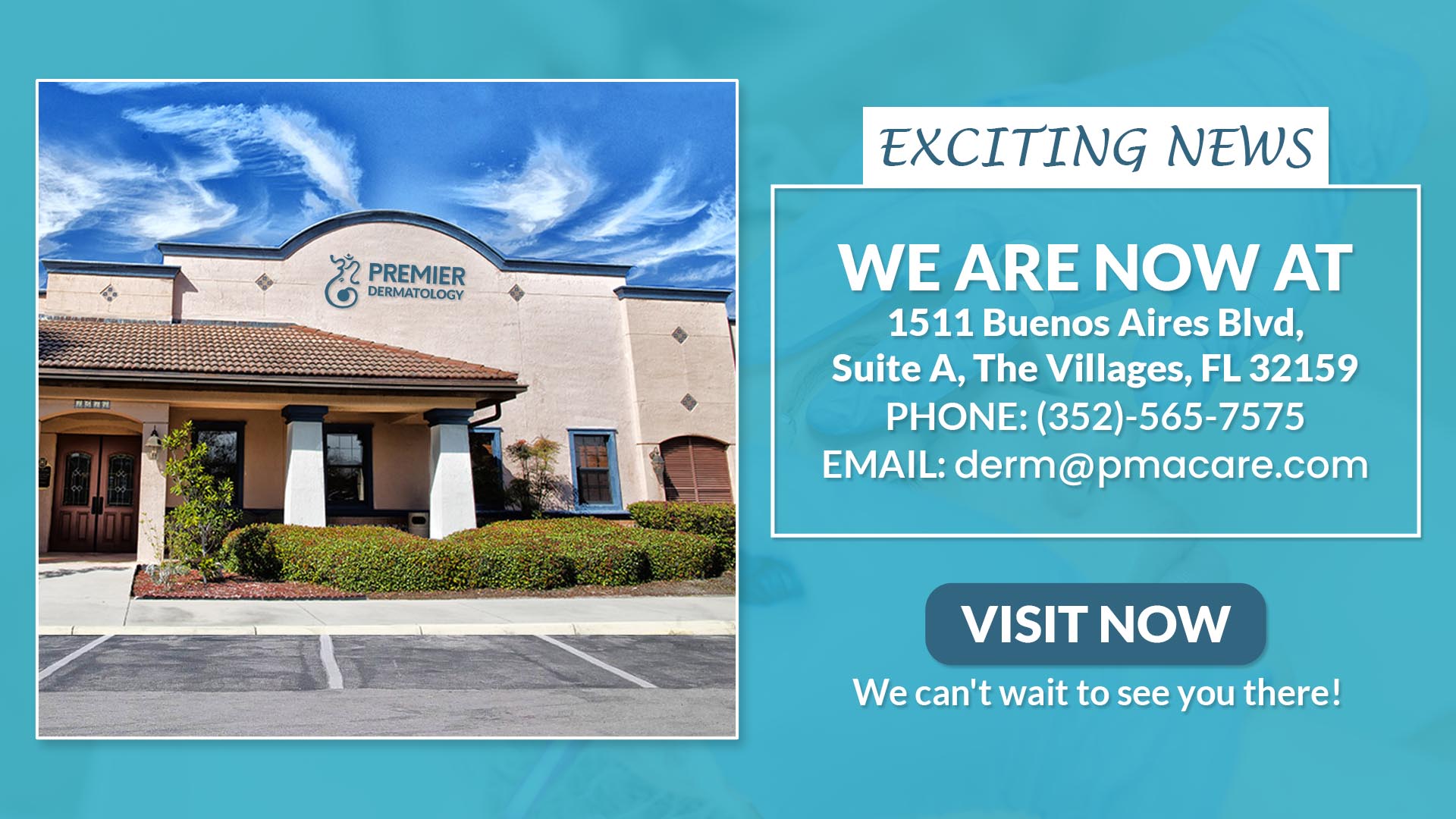What is Acne?
Acne is a common skin condition characterized by the presence of pimples, blackheads, and whiteheads on the face, neck, chest, and back. It is caused by the overproduction of oil in the skin, clogged hair follicles, and the proliferation of bacteria. Hormonal changes, stress, and certain medications can also contribute to the development of acne.

Causes
Acne is caused by a combination of factors, including:
- Hormonal changes: Hormonal fluctuations, such as those during puberty, menstruation, or pregnancy, can increase oil production in the skin, leading to acne.
- Genetics: Acne can run in families and some people may be genetically predisposed to developing the condition.
- Bacteria: Propionibacterium acnes (P. acnes) is a type of bacteria that lives on the skin and can cause inflammation and infection in clogged hair follicles.
- Clogged pores: Dead skin cells and excess oil can clog hair follicles, leading to the formation of blackheads, whiteheads, and pimples.
- Certain medications: Certain drugs, such as corticosteroids, lithium, and androgens, can increase the risk of developing acne.
- Stress: Stress can increase hormone levels and oil production, leading to the development of acne.
What Treatments does TKMD offer for Acne?
Over the Counter Treatments for Acne
Over-the-counter (OTC) treatments for acne include:
- Benzoyl peroxide: available in gels, creams, and face washes
- Salicylic acid: found in face washes, toners, and spot treatments
- Alpha-hydroxy acids: found in face washes, toners, and peels
- Tea tree oil: available in creams, gels, and spot treatments
- Clay masks: help absorb excess oil and remove impurities from the skin
It’s important to choose a product that’s appropriate for your skin type and to use it as directed. Overuse or incorrect use of OTC acne treatments can cause dryness, redness, and irritation. If OTC treatments are not effective, or if your acne is severe, it’s best to see a dermatologist for a personalized treatment plan.


Procedures for Acne
Over the Counter Treatments for Acne
Acne can be treated with a combination of self-care measures and medical treatments. Some common self-care measures include:
Keeping the skin clean: Wash the affected area twice daily with a gentle cleanser and warm water.
Avoiding harsh skin products: Avoid using harsh soaps, scrubbing the skin too hard, or using products with high alcohol content.
Avoiding picking or squeezing pimples: This can lead to scarring and further breakouts.
Medical treatments for acne include:
Topical medications: Over-the-counter creams and gels that contain benzoyl peroxide, salicylic acid, or alpha-hydroxy acids can help unclog pores and reduce inflammation.
- Antibiotics: Oral antibiotics such as tetracycline, minocycline, or doxycycline may be prescribed to kill the bacteria that cause acne.
- Hormonal therapy: If your acne is related to hormonal changes, your doctor may prescribe birth control pills or other medications to regulate hormones.
- Isotretinoin: This is a powerful oral medication that can help clear up severe acne.
- Light therapy: Blue light therapy can help kill the bacteria that cause acne.
It’s important to work with a dermatologist to determine the best treatment plan for your individual needs.
It’s important to choose a product that’s appropriate for your skin type and to use it as directed. Overuse or incorrect use of OTC acne treatments can cause dryness, redness, and irritation. If OTC treatments are not effective, or if your acne is severe, it’s best to see a dermatologist for a personalized treatment plan.
Different ways to avoid Acne
There are several ways to help prevent acne breakouts:
- Keep skin clean: Wash your face twice a day with a gentle cleanser and warm water. Avoid scrubbing the skin too hard.
- Avoid oil-based products: Use oil-free cosmetics, sunscreens, and hair products.
- Avoid picking or squeezing pimples: This can spread bacteria and cause scarring.
- Control stress: Stress can trigger acne breakouts, so find ways to manage stress, such as exercising, meditating, or doing yoga.
- Avoid certain foods: Some studies suggest that certain foods, such as dairy products, high-glycemic-index foods, and foods high in processed carbohydrates, may trigger acne.
- Protect skin from the sun: UV rays can make acne worse, so always use a broad-spectrum sunscreen with an SPF of 30 or higher.
- Keep hair clean: If you have long hair, keep it off your face and wash it regularly to prevent oil and dirt from clogging pores.
Change your pillowcase regularly: Dirt and oil from your hair and skin can transfer to your pillowcase, so change it at least once a week.



